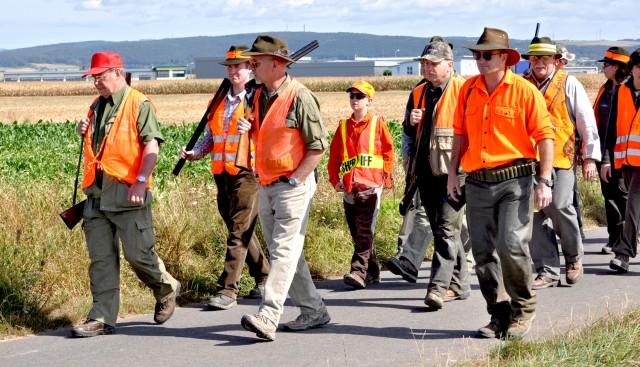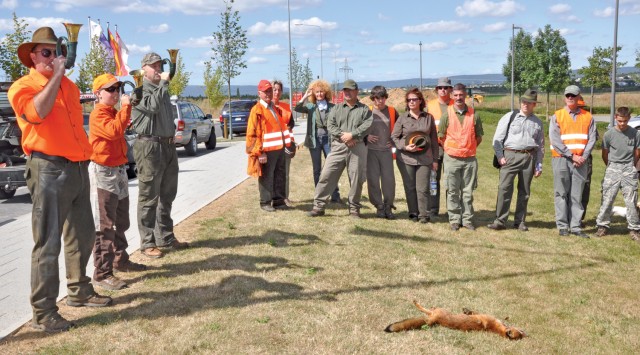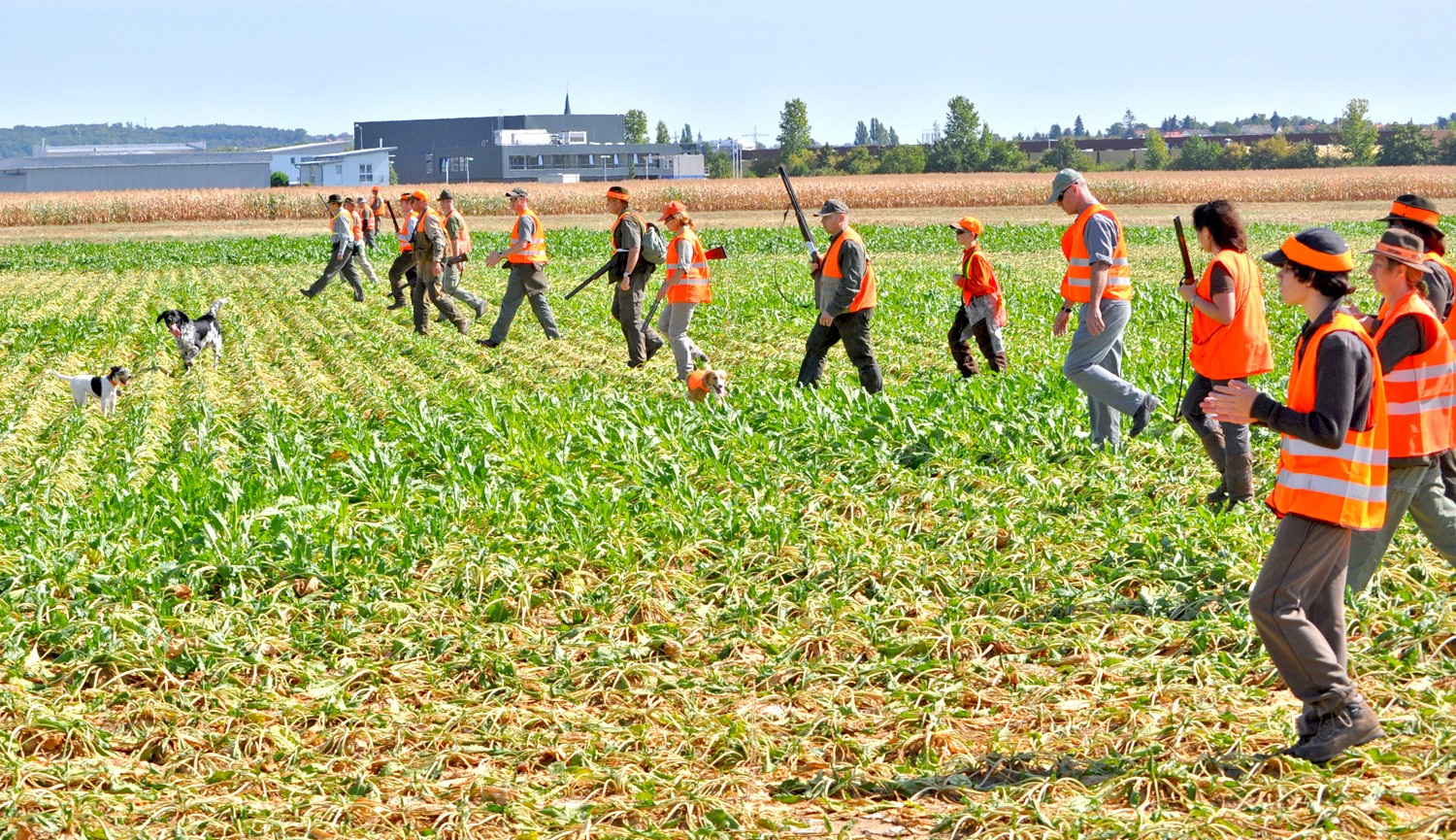WIESBADEN, Germany - It was a great day for a hunt, as members of Wiesbaden Outdoor Recreation's Hunting, Fishing and Sport Shooting Program joined fellow German and American hunters near Wiesbaden Army Airfield Aug. 30.
A,A
The hunters were in search of foxes in the nearby corn and sugar beet fields after local farmers reported a growing population of the wily red-fleeced mammals having repeatedly raided chicken coops in the nearby village of Delkenheim.
A,A
First community hunt
"This is our first real hunt as a community, and the main thing we want to demonstrate is that we're safe hunters," said Michael Boehme, Hunting, Fishing and Sport Shooting Program manager, as he welcomed the hunters and offered advice about the upcoming hunt.
A,A
"I feel there's no better way to teach the new students than by doing," said Boehme, referring to several of the participants who are currently enrolled in the hunting course - and the young hunters who had recently completed the 100 or so hours of classes and testing required for a German hunting license.
A,A
The day before the fox hunt, several of the hunters had volunteered to help build high seats in the forest for a local German forester. That action was part of ongoing cooperation between members of the German and American hunting groups to help in environmental stewardship and conservation.
A,A
"It's a great pastime," said 5th Signal Command's Bob Sanchez, who has helped Boehme teach hunting classes in Wiesbaden. "The camaraderie, the friendship, the meshing of the two cultures is great. Plus the hunting opportunities over here are phenomenal."
A,A
Having an active hunting, fishing and sport shooting program in U.S. Army Garrison Wiesbaden offers single Soldiers, spouses and other enthusiasts a great opportunity, Sanchez said, giving a lot of credit of the success of the program to Boehme, who launched it by volunteering his time to teach the hunting classes last year. "He's very knowledgeable and has opened up a lot of areas" through his contacts with local national hunters and hunting area managers, Sanchez said.
A,A
"This is my first time hunting in the Wiesbaden area," he added, saying, "I've already had the opportunity to meet a lot of the local nationals."
A,A
The 102nd Signal Battalion's Capt. Joseph Billingsley, who was deployed to Iraq when he sought details about hunting in Germany, said he was happy to get information from Boehme by email. "The first thing I did when I returned from deployment was take the Wiesbaden hunting class."
A,A
As volunteers made their way through the corn and sugar beet fields, clapping hands and calling out, the hunters kept a close watch on the perimeter for any escaping flashes of red fur. After working through two fields with no sign of prey, the hunters, led by the German hunting area manager, Dr. Rudolf Hettner, circled a patch of six-foot-high wild flowers and weeds while the beaters again paced through the undergrowth.
A,A
Earlier Hettmer had advised the hunters "to look both ways, like a chameleon - if you look to the right, the fox will come out on the left."
A,A
Fox in sight
On the second pass of the beaters, German hunter Roswitha Holtorf sighted a fox heading for higher ground, took aim and brought the animal down.
A,A
After another hour of combing the nearby habitat, Boehme signaled Hahn an Ruh with the traditional German hunting horn to signal cease fire, collect the game, and to reunite for the traditional closing ceremonies. While the hunters had only felled one fox for their several-hour-long efforts, they shrugged it off saying "some days the foxes win and some days the hunters win."
A,A
As the hunters gathered around the fox, the hunting area manager said a few words over the prey, brushing it with a twig and awarding the pine branch to the successful shooter. Boehme, his son Daniel and fellow Wiesbaden community hunter Lt. Col. Matthew Mattner of the Wiesbaden Health Clinic once again hoisted their Jagdhorns and signaled melodies marking respect to the fox (Fuchs Tot) and the conclusion of the hunt (Jagd Vorbei, Halali).
A,A
As the German and American hunters bid farewell until the next hunt, Boehme described upcoming hunts later in the year for wild boar and rabbits.
A,A
For more information about Wiesbaden's Hunting, Fishing and Sport Shooting Program stop by Outdoor Recreation in Building 1046 on Wiesbaden Army Airfield or call mil 337-5760. For information about hunting and sport shooting opportunities in Baumholder call mil 485-7182.








Social Sharing